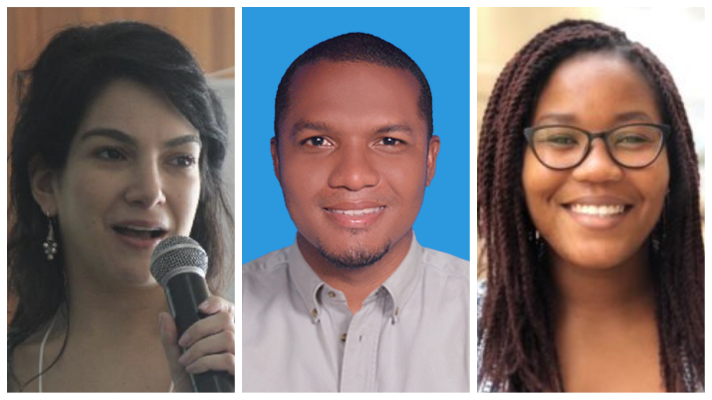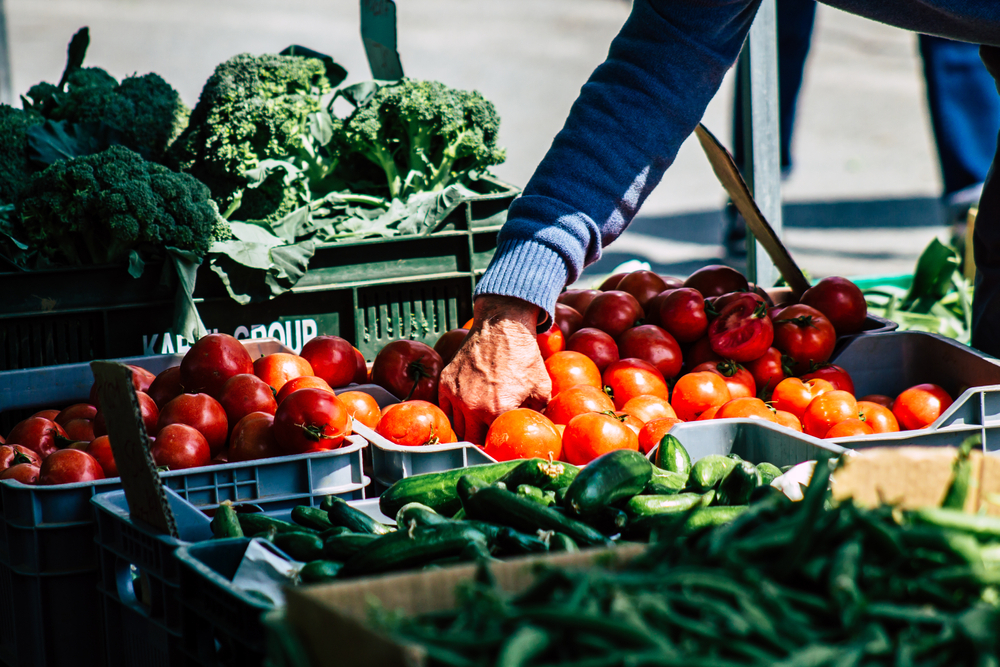With more than 2 billion people overweight or obese globally, and the COVID-19 pandemic revealing deep structural inequities in food environments, improving policies to help move more people toward healthier diets has become more urgent than ever. Yet a dearth of research expertise to guide national policies remains a barrier to addressing this global health crisis.
To combat this barrier and build world-class, in-country research expertise, Vital Strategies with support from Bloomberg Philanthropies launched the Healthy Food Policy Fellowship in March 2020. The Fellowship aims to create and support a pool of Ph.D. candidates from six focus countries: Barbados, Brazil, Colombia, Jamaica, Mexico and South Africa.
The theme for this year’s International Youth Day on Aug. 12 is “Transforming Food Systems: Youth Innovation for Human and Planetary Health,” focusing on the role youth play collectively and individually in changing food systems. Kristine Momanyi of the Bloomberg Philanthropies food policy team invited our newest cohort of Healthy Food Policy Fellows to their “Follow the Data” podcast: Trish Muzenda from South Africa, who is pursuing a Ph.D. in Medical Science at the University of Cambridge; Joana Cruz from Brazil, who is pursuing a Ph.D. in Law and Healthy Food Regulatory Policies in Latin America at Nova University of Lisbon’s School of Law; and Nicolás Guzmán from Colombia, who is pursuing a Ph.D. in Health Systems at John Hopkins University.
The conversation ranged from the current food environment in their home countries to advice for future applicants applying for the fellowship. Here are some highlights:
What is the food environment in your home country? How will your research make a positive impact on the current landscape?
Joana Cruz grew up eating traditional Brazilian and Armenian food, but said the food environment in Brazil looks a lot different for children today. Ultra-processed foods, which are industrialized and high in salt, sugar and fat, are widely available and accessible in markets, homes and schools. Joana explained how she would like her research to improve Brazil’s food environment by promoting healthier food choices and policies including access to organic foods.
Facing a similar situation in Colombia, Nicolás Guzmán explained that ultra-processed foods are changing eating habits, so much so that in rural areas many people consume sugary drinks instead of water. In the future, Nicolas is interested in working in a food policy setting in Colombia that is focused on noncommunicable diseases.
Born and raised in Zimbabwe, Trish Muzenda grew up eating home-cooked meals, traditionally a starch, a vegetable and a meat. But when she moved to South Africa, a newfound independence led her to indulge in consuming highly processed foods—mostly because such food was easier to access. Based on that experience, Trish would like to make healthier food choices easier in South Africa. One of the ways to do that, she said, is to increase the accessibility of healthier food.

“One cannot think well, love well, sleep well, if one has not dined well.”
Virginia Woolf
What does food mean to you?
Trish quoted Virginia Woolf: food is life. It’s what gives her the fuel to work and do her day-to-day activities and is an integral part of her social and cultural interactions with friends, family and colleagues.
What moved you to choose your field of study?
Nicolás, who is pursuing a Ph.D. in Health Systems at Johns Hopkins University, said he’s always been motivated to help people and realized that public policy is an effective tool to do that. In Colombia, there is a lack of expertise on both political economy and health issues; Nicolás hopes his research will help bridge that gap and lead to policies that will foster a healthier food environment.
What is one piece of advice for anyone interested in applying for this fellowship?
Joana: “If you’re passionate about promoting social change through healthy food policies, be sure to present this information in your application. Fellows have a very important role in public policy.”
Nicolás: “My advice is to begin the application ahead of time and try to show on your application your passion to impact public policies.”
Trish: “When preparing your application do take some time to write out the application —trust me it’ll go through a lot of revisions, so allocate time for that. Always seek out support: feel free to ask questions if you don’t understand anything in the application process and someone on the team will definitely reach out to you.”
Since they will be studying in universities outside of their home countries, the Fellows were asked: What are you most looking forward to experiencing in this new place?
Joana is looking forward to eating traditional Portuguese food and tasting the many varieties of bacalhau.
Nicolás is traveling to the United States for the first time, and he is most excited to learn about new cultures and meet new people
Trish is looking forward to learning how to cycle in Cambridge.
The fellows are the next generation of food policy experts. Through their research and professional ambitions, they will be well positioned to change food environments around the world.
The Healthy Food Policy Fellow is looking forward to welcoming their next cohort of students, applications will open October 2021. Be on the lookout for information on how to apply here and on Twitter @VitalStrat.
Listen to the full podcast and learn more about Trish, Joana and Nicholas’s work in food policy.
Learn more about Vital Strategies work in food policy.
Get Our Latest Public Health News
Join our email list and be the first to know about our public health news, publications and interviews with experts.
